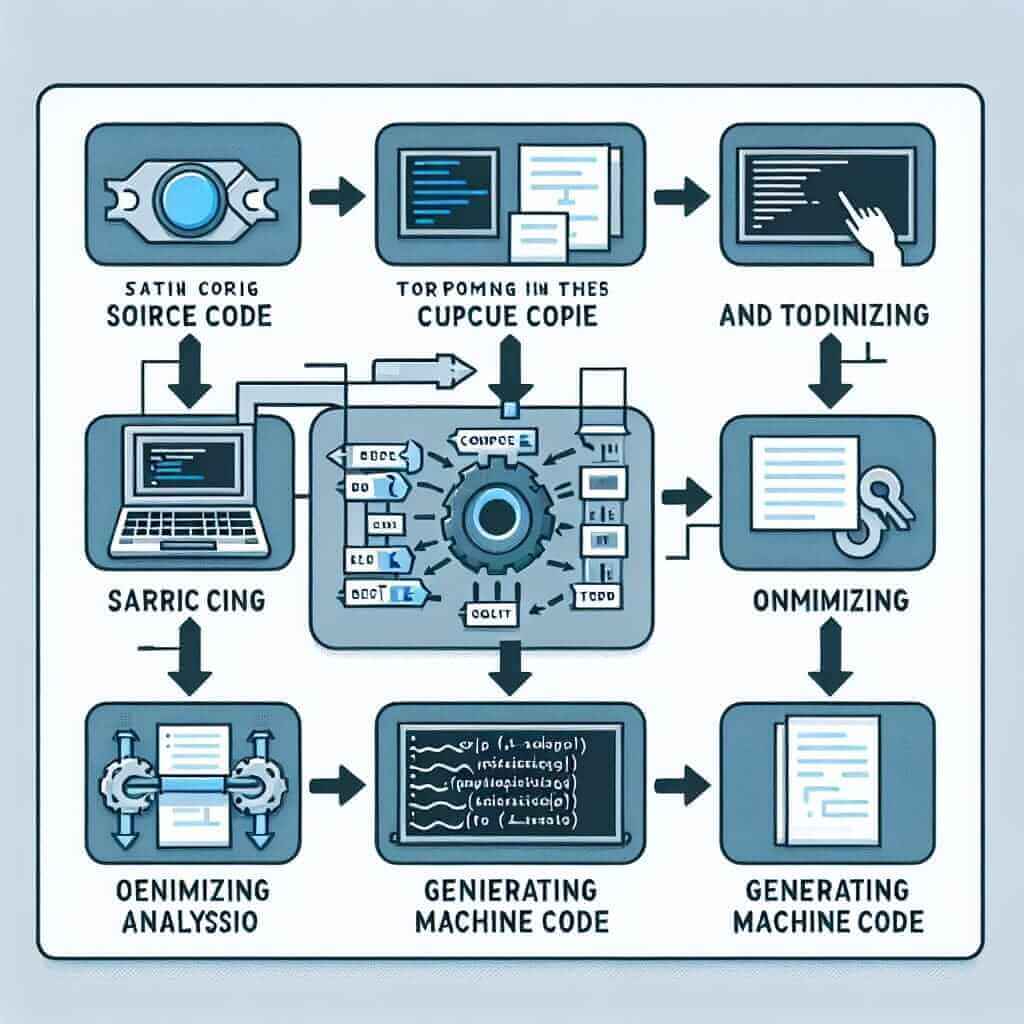Compiler” (noun, /kəmˈpaɪlər/) is a specialized program that translates instructions written in a high-level programming language, which is understandable by humans, into a low-level machine language, which can be directly executed by a computer.
Synonyms: translator, assembler, interpreter, coder
Example: The compiler detected several errors in the code, preventing the program from running successfully.
This term falls under the theme of “Technology” frequently appearing in the IELTS exam, particularly in the Listening and Reading sections. Understanding “compiler” and related terms is crucial for achieving a high band score.
Delving Deeper into “Compiler”
Meaning and Usage:
A compiler acts as a bridge between human-readable code and machine-executable instructions. It analyzes the entire source code and converts it into an executable file, like a .exe file on Windows.

IELTS Exam Relevance:
The term “compiler” can appear in various contexts within the IELTS exam, especially:
- Listening: You might encounter “compiler” in lectures about computer science, software development, or technology trends.
- Reading: Passages discussing programming languages, software engineering, or the history of computing might utilize this term.
Applying “Compiler” in IELTS Sections
Listening Example:
“The development of the first compilers in the 1950s revolutionized the way we write and execute computer programs. Before that, programmers had to manually translate their code into machine language, a tedious and error-prone process.”
Reading Example:
“… The efficiency of a compiler can significantly impact the speed and performance of the software. Modern compilers employ sophisticated optimization techniques to generate compact and efficient machine code…”
Writing Example (Task 2 – Opinion Essay):
Prompt: Some people believe that learning to code is essential for everyone in the 21st century. Do you agree or disagree?
Excerpt: “Furthermore, understanding the basics of programming, even without delving into the complexities of compilers and low-level languages, fosters computational thinking, a valuable skill in various aspects of life.”
Combining “Compiler” for Enhanced Fluency
- Source code compiler: This emphasizes the origin of the instructions being translated.
- Just-in-time compiler (JIT): Refers to a type of compiler that translates code during program execution.
- Compiler optimization: Highlights the process of improving the efficiency of the generated machine code.
Idioms and Expressions:
- “Lost in translation”: While not directly related to a compiler, this idiom signifies a misunderstanding that occurs during communication, similar to how errors in code can cause a compiler to fail.
Conclusion
Mastering the vocabulary related to technology, including terms like “compiler,” is essential for succeeding in the IELTS exam. By understanding the meaning, usage, and context of such terms, you can confidently tackle various question types and achieve your desired band score. Remember to practice using these terms in your speaking and writing to enhance fluency and demonstrate your command of the English language.